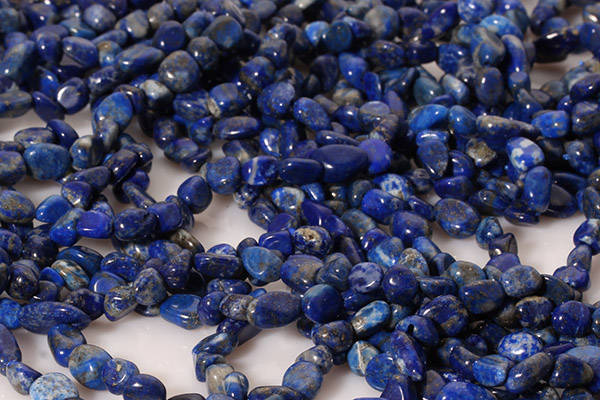
Do you own a piece of Lapis Lazuli jewelry or have you ever come across this beautiful gemstone? While Lapis Lazuli has been revered for centuries for its aesthetic appeal, many are unaware of the potential negative effects it can have on their health. It’s crucial to understand the risks and safety measures associated with Lapis Lazuli before incorporating it into your lifestyle.
In this article, we’ll provide you with a brief overview of the potential dangers of Lapis Lazuli. It’s a deep blue metamorphic rock that has been used in art, jewelry, and even medicine for centuries. However, it can contain hazardous materials, such as pyrite and calcite, which can cause respiratory issues, skin irritation, and other health concerns. With the help of experts in the field, we’ll take a closer look at the risks and safety measures you need to keep in mind when using Lapis Lazuli.
If you’re a fan of gemstones, this article will be a valuable read for you. We’ll discuss the potential hazards of Lapis Lazuli and ways to avoid them. You’ll learn how to identify and handle Lapis Lazuli safely and make an informed decision when purchasing Lapis Lazuli products. So, without further ado, let’s dive into the world of Lapis Lazuli and understand its risks and safety measures from experts in the field.
What is Lapis Lazuli?
Lapis Lazuli is a deep blue gemstone that has been used for thousands of years for its beauty and spiritual properties. It is a combination of several minerals, including lazurite, calcite, and pyrite, and is often used in jewelry, art, and decorative objects.
The Negative Effects of Lapis Lazuli
While Lapis Lazuli has many positive benefits, there are also some potential negative effects associated with its use.
Physical Effects
Lapis Lazuli can cause physical harm if ingested or inhaled. The stone contains high levels of arsenic and sulfur, which can be toxic when consumed in large amounts. It can also cause skin irritation or rashes if it comes into contact with the skin.
Spiritual Effects
Lapis Lazuli is believed to have spiritual properties that can affect the mind and emotions. While some people find it calming and soothing, others may experience negative effects such as anxiety, depression, or restlessness. It is important to be aware of these potential effects before using Lapis Lazuli for spiritual purposes.
Other Negative Effects
In addition to the physical and spiritual effects, Lapis Lazuli can also have other negative effects. It is a soft stone and can be easily scratched or damaged, which can affect its value and beauty. It can also be expensive, which can make it difficult for some people to afford.
How to Minimize the Risks of Lapis Lazuli
While there are potential negative effects associated with Lapis Lazuli, there are also ways to minimize the risks while still enjoying its benefits.
Buy from a Reputable Source
When buying Lapis Lazuli, it is important to buy from a reputable source. This ensures that the stone has been properly tested and is safe to use.
Handle with Care
Lapis Lazuli is a soft stone and can be easily scratched or damaged. To minimize the risk of damage, it is important to handle it with care and store it properly.
Use in Moderation
To minimize the potential negative effects, it is important to use Lapis Lazuli in moderation. This means not ingesting or inhaling the stone and not using it for extended periods of time.
Be Mindful of Spiritual Effects
When using Lapis Lazuli for spiritual purposes, it is important to be mindful of the potential negative effects. If you experience any negative effects, it may be best to stop using the stone or to use it in a different way.
Conclusion
Lapis Lazuli is a beautiful and spiritually powerful stone, but it also has some potential negative effects. By being aware of these risks and taking steps to minimize them, you can still enjoy the benefits of Lapis Lazuli without putting yourself in harm’s way.
FAQs
Is Lapis Lazuli safe to wear?
Yes, Lapis Lazuli is safe to wear as long as it is not ingested or inhaled and is handled with care.
Can Lapis Lazuli cause skin irritation?
Yes, Lapis Lazuli can cause skin irritation or rashes if it comes into contact with the skin.
Is Lapis Lazuli expensive?
Yes, Lapis Lazuli can be expensive, which can make it difficult for some people to afford.

